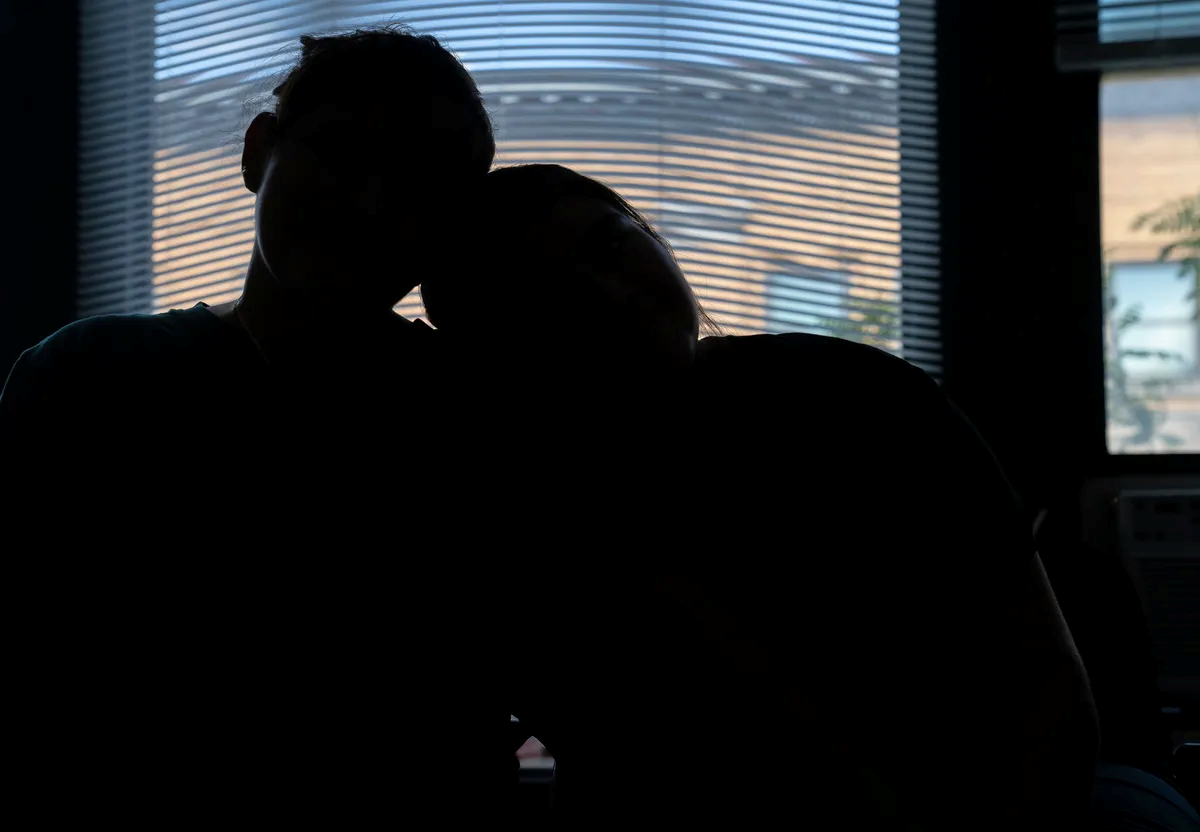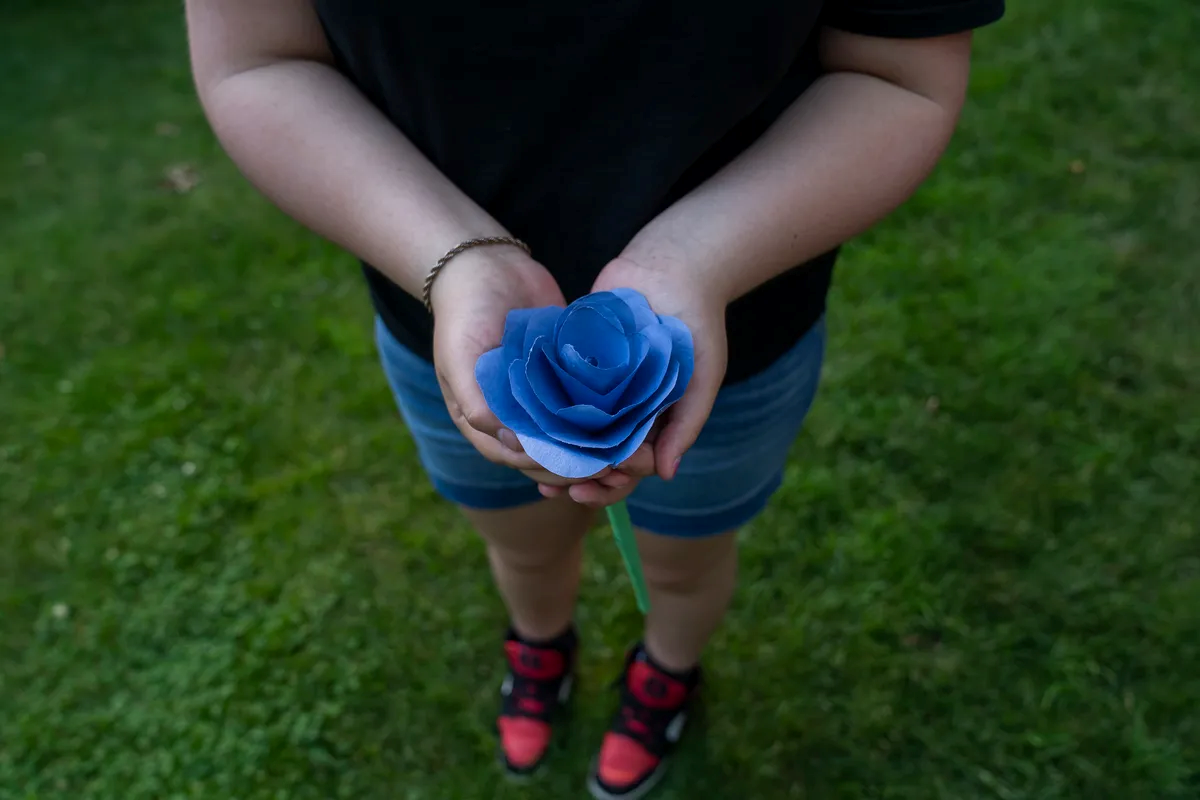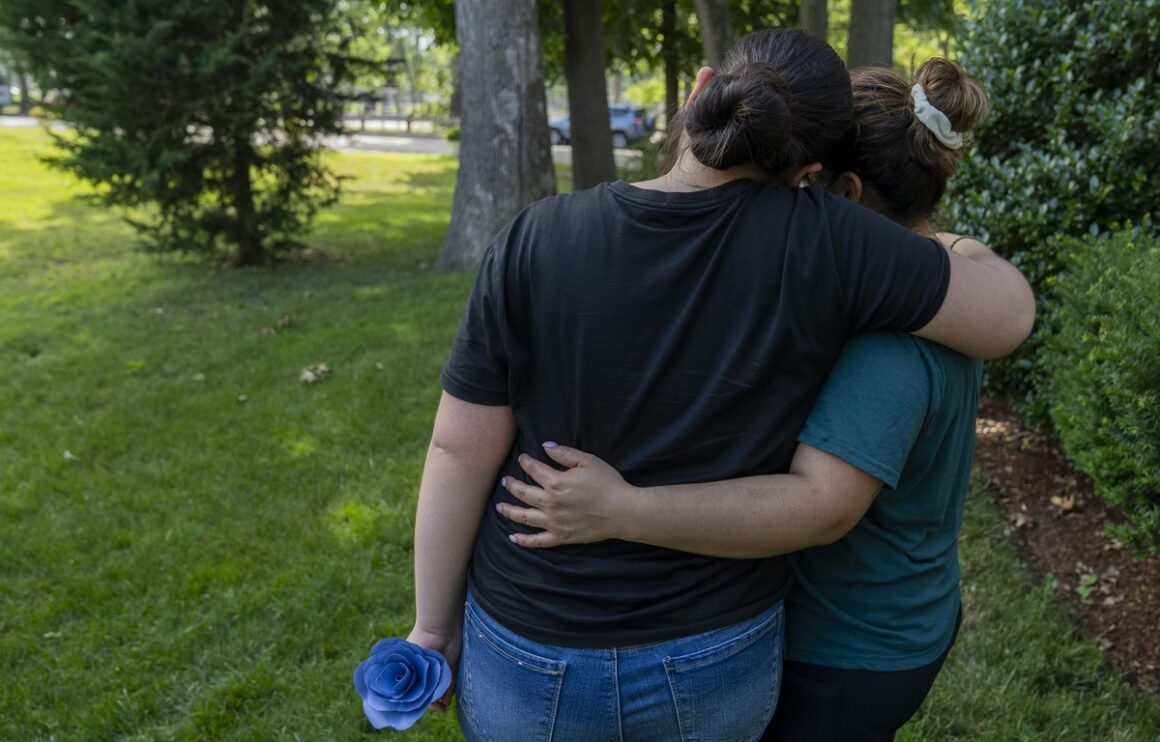FRAMINGHAM, Massachusetts — In the summer of 2021, Lesca got a startling phone call.
“We have your daughter,” an immigration official said on the other line.
Lesca’s 9-year-old daughter, Yori, had crossed the southern border alone, hoping to reunite with her mother in Massachusetts. Lesca could not believe such a small girl had endured the long journey from Guatemala.
After a month in a Texas shelter, Yori stepped off a plane at Boston Logan International Airport and walked through a crowded baggage claim and into her mother’s arms. Though they had talked regularly on the phone since Lesca fled her home country, they had not held each other in close to seven years.
Last month, nearly four years after the federal government helped reunite Yori with her mother, Lesca received another shocking phone call.
Yori had been arrested in Maine.
On May 23, federal immigration authorities apprehended Yori, now 13, during a traffic stop near Farmington. It took two weeks to get her back to her mother, an ordeal that underscored the shifting norms and secretive nature of the immigrant detention system in President Donald Trump’s second term.
“I was scared because they were taking us away and my mom didn’t know anything,” Yori said in a joint interview with her mother, holding back tears. The Bangor Daily News agreed to refer to them by nicknames because they did not want their full names to jeopardize their immigration cases or the minor’s privacy.

The girl is an example of how children have become ensnared in the president’s aggressive immigration crackdown, including those the government previously reunited with a parent. The Republican president’s administration has made it harder to release kids to their undocumented families.
Advocates who worked on Yori’s case said they encountered an unusual amount of difficulty obtaining information about her detention, including her whereabouts, basic paperwork and what it would take to release her. The Massachusetts governor’s office and a congresswoman intervened in the case that began in Maine.
Here and across the country, arrests of undocumented immigrants have surged to record heights in a crackdown that has also separated children from their families. In February, agents detained a 17-year-old during a traffic stop on the Maine Turnpike in Falmouth. The teen had moved to Lewiston after reuniting with his mother as an unaccompanied minor.
Trump and administration officials have said they are targeting dangerous criminals. In a statement, a U.S. Customs and Border Protection spokesperson said an officer stopped Yori’s car to perform an immigration inspection and determined the male driver was an MS-13 gang member wanted for murder. Everyone in the vehicle, including Yori and another female passenger, was arrested because they lacked authorization to be in the country legally.
JoAnn Dodge, Yori’s immigration attorney, said she was not aware that federal authorities had accused the driver, a friend of the family, of being a gang member until the BDN contacted the agency for comment. The BDN was unable to contact the man or his lawyer. Regardless of the allegation, Dodge questioned why authorities didn’t release her client back to her mother after confirming that federal officials previously vetted Lesca as her sponsor.
“He was saying after the election he was going after criminals,” Lesca said, referring to Trump, then her daughter. “She’s not a criminal. Criminals are rapists and killers, not people who are studying and working.”
Yori, a seventh-grader with long, black hair, said she left her home in Framingham that Friday morning with a group of family friends for a Memorial Day weekend hiking trip in Carrabassett Valley, repeating a vacation the group had taken the year before. Lesca, a cafeteria worker who is also the parent of two children born in the U.S., stayed behind to care for Yori’s sick 5-month-old half-brother, she said.
Not far from their destination, a white truck pulled the car Yori was in over and a uniformed officer inquired about everyone’s immigration status. A CBP spokesperson said the agent stopped the vehicle during a routine patrol in Livermore Falls after running the car’s out-of-state plates and seeing that it was registered to “an alien currently in the U.S. illegally.”
Yori claimed the arrest took place on the shoulder of State Route 27 around New Portland, based on where she dropped a pin on Google Maps to alert other members of the hiking group, who were traveling in multiple cars, of what was going on.
Her arrest was captured on video by two members of the group who followed the pin drop to her location. The BDN reviewed stills from the video that showed uniformed officers guiding the girl and another passenger, a 21-year-old woman, into the back of a white CBP truck, their wrists bound in front of them.
CBP said it does everything in its power to reunite minors with their legal guardians, but in many cases, the guardian does not have legal status and refuses. Lesca was fearful about picking up Yori herself, but said she told an agent the night of Yori’s arrest and the following morning that she was the girl’s mother and would make arrangements to pick up her daughter.

Diego Low, the director of Metrowest Worker Center, known as Casa in the Framingham area, and who supported Lesca throughout her daughter’s detention, also volunteered to pick the girl up, he said in an interview.
Yori spent two nights sleeping on a thin mattress under an aluminum blanket in the Rangeley-area border station, she said. At one point, she sobbed over the phone to her mother because she misread a document that made her believe she was about to be deported to the Philippines, a place she had never been before. Lesca tried to comfort her daughter over the phone, telling her to pray and struggled because she was also crying.
On Sunday morning, two days after Yori’s arrest, a pair of older women who worked for an escort company took the girl to an airport and put her on a plane, she said. After a long car ride, she arrived at a place she learned was a shelter for unaccompanied minors. She immediately felt different from the other girls, all of whom had recently crossed the border and were waiting to be placed with a sponsor. Yori already had a sponsor in her mother.
Around this time, federal policy was shifting. The Trump administration recently changed its rules in a way that effectively disqualifies undocumented parents from sponsoring minors by requiring forms of identification and income verification that are difficult to provide without legal status. In May, the National Center for Youth Law challenged those rules in court on behalf of children who have endured prolonged detentions, winning a limited injunction on June 9.
The group of advocates working on Yori’s case in Massachusetts, which had expanded to officials in the state’s Office for Refugees and Immigrants, believed the new federal rules meant Yori needed a new sponsor with legal authorization to be in the country, Low said.
That plan confronted a tenuous situation that is not uncommon in immigrant communities: Yori had a relative with legal status willing to sponsor her but it required the person to provide the government with information about their household, which included undocumented immigrants.
During this time, nobody, not even Yori, knew exactly where the girl was being held. The only clue her mother had about her whereabouts was when Yori called home every day. Bethlehem, Pennsylvania, appeared on the caller ID, according to Low. At one point, Lesca asked a shelter employee for her daughter’s location and the woman replied that she was not authorized to provide that information, according to a screenshot of their text exchange.
The situation became more complicated near the end of Yori’s second week in custody, when Dodge contacted the Office of Refugee Resettlement, the federal agency that oversees the care of unaccompanied minors, and an official told her over the phone that they had no record of Yori in the system, the lawyer said. Dodge, confused and alarmed, only confirmed her client’s location by contacting Immigrations and Customs Enforcement, or ICE, which had the girl’s address listed for a shelter run by KidsPeace, a children’s services nonprofit.
The Office of Refugee Resettlement declined to comment, citing a privacy policy related to cases involving minors. A representative for KidsPeace did not respond to a voicemail seeking comment, but someone who answered the phone at an address in Bethlehem confirmed the nonprofit operates a shelter for unaccompanied minors. A spokesperson for ICE declined to comment.
Yori tried to remain calm throughout this entire process but began to fear she might not go home for a while. Her closest friend at the shelter, a 17-year-old pregnant girl, had been there four months. The team working on her case sought help from Massachusetts politicians. On Thursday, June 5, the office of U.S. Rep. Katherine Clark of Massachusetts, the No. 2 House Democrat, contacted the shelter to request an aide be allowed to visit.
The next day, Lesca received a call asking if she would pay the airfare to fly Yori home. Nobody close to her knew exactly what triggered the government’s decision.
On Saturday, June 7, Lesca once again walked into Logan’s baggage claim area. It was the same terminal where she embraced her daughter years before. She was anxious. The government’s sudden reversal made her fear she was stepping into a trap. Advocates and others working with the family stood nearby, ready to record if an immigration agent placed the mother under arrest.
Yori finally emerged with a social worker from the shelter. The woman’s face was entirely obscured under a black hoodie, a baseball cap and, according to Yori, a mask that she purchased and donned when they got off the plane.
The handoff took less than five minutes, said Low, who was present that morning. The woman took a photo of Lesca’s ID and left.
“So she was returned? Where is the paperwork? The paperwork wasn’t submitted but somehow she is back?” Dodge said shortly after learning her client was home. “I think everyone was a little caught off guard but relieved.”

Yori stayed home from school on Monday. When she returned, her classmates asked her if she’d been deported. They had no idea what she’d really gone through, she thought to herself.
Yori was home. For Lesca, the episode was not entirely over. Her friend is the mother of the 21-year-old woman who was arrested at the same time as Yori. As of mid-June, she was still detained somewhere in Texas, Lesca said.
“My friend thought because her daughter had a Social [Security number], a work permit and an open immigration case, she’d be protected,” Lesca said. “But we see that makes no difference.”







